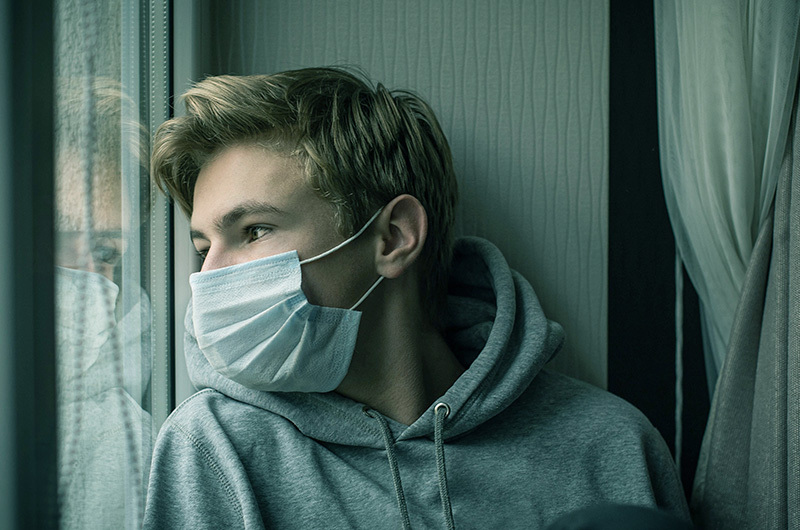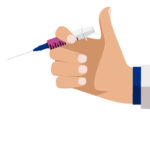Boston Children’s post-COVID clinic cares for those with lasting symptoms

One teenager complains of chronic muscle pain. Another child feels too exhausted to go to school or play sports. Still another can’t shake the feeling of “brain fog” — memory and cognition challenges. Despite their different symptoms, all three patients have one thing in common: They’ve all had COVID-19, and they’re all experiencing lingering symptoms long after their diagnosis.
Post-COVID symptoms in kids
Dubbed “long COVID” by the media, such persistent health woes are increasingly being studied in adults. Yet less is known about post-COVID symptoms in children and teens. One recent Italian study found that about half of kids with a COVID-19 diagnosis still had one lingering symptom four months later — typically fatigue — even if they were initially asymptomatic. Nearly 23 percent had at least three symptoms, such as headaches, joint or muscle pain, fatigue, brain fog, and respiratory problems.
It’s a situation similar to what clinicians at Boston Children’s Hospital have observed over the past 18 months, says Dr. Alicia Johnston of the Division of Infectious Diseases. “These aren’t kids with MIS-C,” she explains, referring to the serious inflammatory syndrome that appears to be a complication of COVID-19 in some children. Instead, she and her colleagues have seen a number of patients between about age 10 and their early 20s who have normal results from blood tests, echocardiograms, and tests of lung function, yet continue to experience symptoms.
A team approach to care
Enter Boston Children’s post-COVID clinic. Formed in March 2021, the clinic offers evaluation and referral to specialty care for kids and teens with post-COVID symptoms. While some families contact the clinic directly, others are referred by their pediatrician or other health care provider. After an initial screening with an infectious disease clinician — often in the form of a virtual visit — they are then connected with the appropriate team of subspecialists to treat their symptoms.
For example, a patient who is experiencing shortness of breath might be referred to Pulmonology, while a child with chronic muscle pain would be seen by clinicians in the Pain Treatment Center. Because many kids experience multiple post-COVID symptoms, a multidisciplinary team approach is key. The clinic, says Johnston, relies on ongoing communication to keep all specialists — and the patient’s family — on the same page.
Hope for the future
Although it’s too soon to be able to full track the clinic’s outcomes, anecdotal reports are promising: Some patients appear to have fully recovered. “We’re cautiously optimistic that most kids and teens will have a similar course,” says Johnston. The team also hopes to conduct research on post-COVID syndrome in kids in the future.
The clinic also serves as a reminder that vaccination, social distancing, and masks are crucial to helping protect kids against COVID-19. “It’s easy to brush off concerns about children until it’s your kid who’s sick,” she says. “We want families and providers to know we’re here to help — but that prevention is the most important step.”
To make an appointment, please call 617-355-6832.
Related Posts :
-

Anxiety in kids during COVID-19: What parents should know
Some kids hide in their rooms. Others turn their cameras off during remote learning and don’t want to talk ...
-

Answers to your questions about the COVID-19 vaccine
Update: On May 10, 2021, the U.S. Food and Drug Administration (FDA) granted emergency authorization for use of the Pfizer vaccine ...
-

Asthma, softball, and COVID-19: Gwen’s story
Gwendolyn Castro has a competitive streak. Whether playing softball or debating topics like universal health care, the 15-year-old wants to ...
-

You’ve had the COVID-19 vaccine. What now?
As more and more people across the country get vaccinated for COVID-19, the rules for social distancing are also slowly ...





